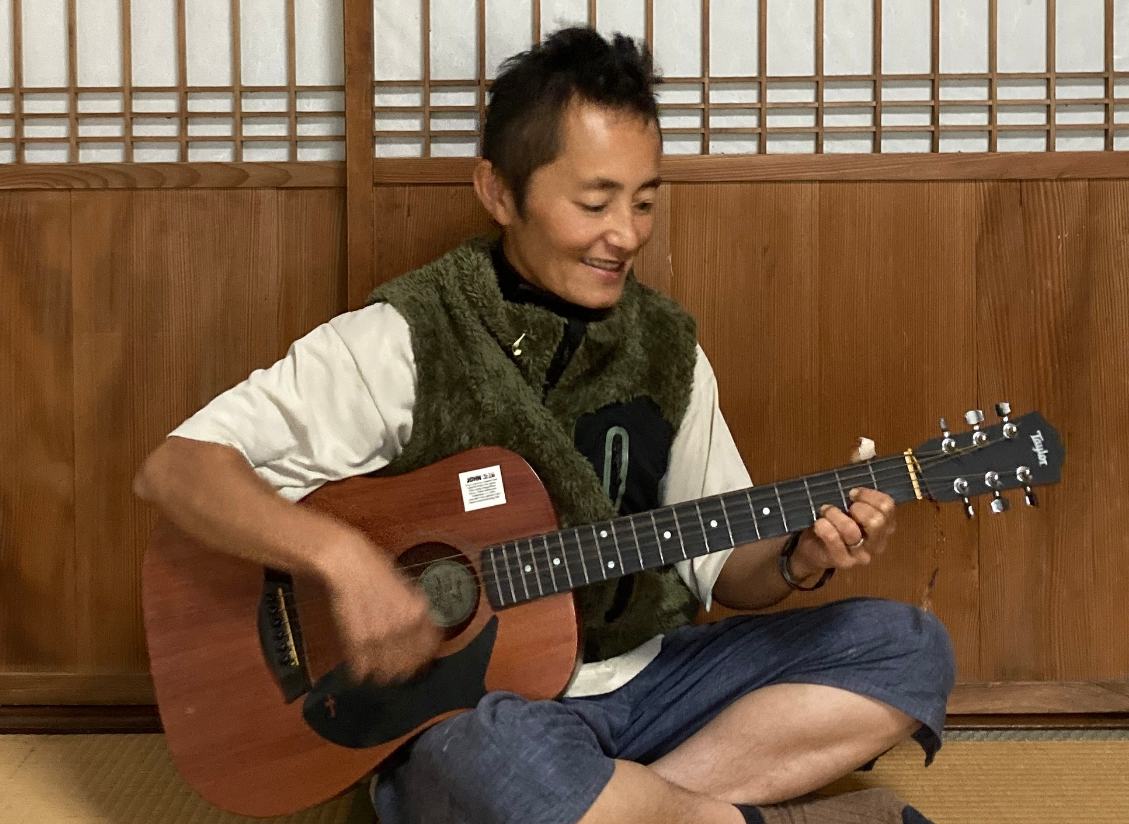World
Out in the World: LGBTQ news from Europe and Asia
Russia investigating Duolingo for allegedly spreading ‘LGBTQ propaganda’

RUSSIA

The Russian Federal Service for Supervision of Communications, Information Technology and Mass Media agency, abbreviated as Roskomnadzor, has launched an investigation into the language learning app Duolingo for allegedly spreading “LGBTQ propaganda.”
The popular learning app teaches more than 40 languages to more than 60 million users worldwide.
Russian media news outlet Novaya Gazeta reported that a complaint, filed by a group Radetel, based in Novosibirsk in central Russia, and claims on its social media and website that it is on a mission to protect “public morality, culture and traditional values,” accused the learning app of violations of Article 5 the Russian “on the protection of children from information harmful to their health and development” law which specifies the promotion of “non-traditional sexual relations as detrimental to children’s health and development.”
Russian state media outlet TASS reported that Roskomnadzor confirmed that the agancy would be investigating Duolingo for potential “distribution of information that promotes LGBTQ.”
For its part as defined on its website, Duolingo states: “Duolingo believes deeply in diversity and representation. This made it a no-brainer to include all types of characters of different ages, ethnic backgrounds and sexual orientations.”
The app’s statement goes on reading:
“The second reason is our learners. Something really unique about Duolingo is the extremely vast and diverse audience for our content: Language learners of all ages, from all around the world. Yes, that’s a lot of people. And with such a broad base of learners, we have a responsibility to reflect and relate to the experiences of all kinds of people, LGBTQIA+ folks included.
Of course, characters are also much more compelling when they’re relatable, not only because of their dreams and their flaws but also who they love. So when we create Stories, which are written first in English and then adapted to other languages, we aim to make our content entertaining and relatable for learners worldwide. This is a fun and oftentimes difficult challenge. We’re proud to have our characters, especially our LGBTQ characters, help us do that.”
Radetel, which referred to members of the LGBTQ community as “sodomites” in its complaint to Roskomnadzor, said that “outraged” parents had brought Duolingo’s LGBTQ “propaganda” to its attention, adding that they had said they didn’t know how to explain the sentences to their primary school-age children “without traumatizing them,” Novaya Gazeta reported.

(Human Rights Watch) – Russian courts have issued the first known extremism convictions arising from the 2023 Supreme Court ruling designating the “international LGBT movement” as extremist, Human Rights Watch said on Feb. 14. The Supreme Court ruling, which was handed down on Nov. 30 but became public only in mid-January 2024, indicates that many more convictions may follow.
The Supreme Court ruling also declared the rainbow flag a forbidden symbol of the “LGBT movement.” Displaying the flag is the basis for administrative penalties in at least three cases that courts have tried in recent weeks. In late January, a court in Nizhny Novgorod sentenced a woman to five days detention for wearing rainbow-colored earrings after an individual accosted her and her friend in a cafe. Also in late January, a judge in Volgograd region handed down a fine over a rainbow flag published on a social media page. In early February, a court in Saratov fined a woman for posting a rainbow flag on social media.
“The Supreme Court decision opened the floodgates to allow arbitrary prosecution of lesbian, gay, bisexual, transgender and queer people, along with anyone who defends their rights or expresses solidarity with them,” said Tanya Lokshina, associate Europe and Central Asia director at Human Rights Watch. “For years, Russian authorities tried to erase LGBT visibility, and now they have criminalized it.”
At least three groups supporting LGBT rights have shut down their operations for fear of prosecution. Other consequences of the ruling have included a series of police raids of gay clubs, incidents of self-censorship, and an uptick in requests for legal advice from remaining LGBT support groups, which have now turned to working clandestinely.
The Supreme Court ruling and prosecutions flowing from it are discriminatory, violate a wide range of rights, and should be overturned, Human Rights Watch said.
Under Russian criminal law, a person found guilty of displaying extremist group symbols faces up to 15 days in detention for the first offense and up to four years in prison for a repeat offense. Participating in or financing an extremist organization is punishable by up to 12 years in prison. The authorities may include individuals suspected of involvement with an extremist organization in the countrywide “list of extremists” and freeze their bank accounts. People deemed to be involved with an extremist organization are barred from running for public office. Draft legislation further expanding the notion of “justifying extremism” has passed first reading in Russia’s Parliament.
The Supreme Court’s perverse decision to accept the “international public LGBT movement” as a fictional defendant in this case was compounded by their denial of all requests by LGBT activists to participate, followed by the claim that “the defendant party failed to appear.” The court also refused to consider numerous appeals lodged by LGBT rights activists, saying that only the parties to the case had the right to appeal the ruling. By using the twisted legal fiction that there was an identifiable defendant called the “international LGBT movement” to contest the case, the Supreme Court denied all Russian LGBT persons and their allies directly impacted by the decision any due process rights, including by refusing to disclose the text of the judgment or reasons for the decision.
The text of the ruling, which was later seen by a regional media outlet in the course of a court case and published in January, states that the rainbow flag is the movement’s symbol. Because Russian law enforcement practice treats even old social media posts that are still available online as grounds for prosecution, thousands of people, and most likely more,who have posted the rainbow flag over the years face the risk of prosecution. The ruling states that 281 “active participants” in the movement have been personally identified, but it does not clarify how or by whom.
The Supreme Court ruling is the most recent example of authorities’ long record of misusing Russia’s broad and vague anti-extremism legislation to prosecute peaceful critics and members of certain religious groups, Human Rights Watch said. Hundreds of people have been wrongfully prosecuted under criminal extremism legislation, according to the SOVA Research Center and the list of political prisoners released by prominent human rights group Memorial.
Since a court banned three organizations affiliated with political opposition leader Aleksey Navalny as “extremist” in 2021, Navalny and five of his supporters have been sentenced to prison on a range of extremism charges for legitimate activism, while dozens more have received fines and short-term jail sentences. Six members of Vesna, a democratic youth movement, have been in pretrial custody since June 2023 on various spurious charges, including extremism. Hundreds of Jehovah’s Witnesses have been jailed since the organization was banned as “extremist” in 2017.
Editor’s Note: On Feb. 16, it was announced that opposition leader Aleksey Navalny had died in a Russian Penal Camp.
The Russian Federal Prison Service said early Feb. 16 that Navalny felt unwell after a walk and lost consciousness. An ambulance arrived, and its crew tried to rehabilitate him but was unsuccessful, it added.
Navalny was serving a 19-year sentence on charges of extremism, and in December was moved from a different prison to the highest-security level facility in the country near the Arctic Circle. The “special regime” penal colony prison in the town of Kharp, which is about 1,200 miles northeast of Moscow, is in a remote area known for its severe winters.
Navalny has been imprisoned since January 2021, when he returned to Russia after recovering from a poisoning that he blamed on Putin, who has denied trying to kill Navalny with a nerve agent.
The Supreme Court ruling has drawn strong criticism internationally. The U.N. High Commissioner for Human Rights deplored the ruling, stating that “the law must never be used to perpetuate inequality and discrimination,” and saying that Russia should repeal laws that discriminate against LGBTQ people.
Five U.N. human rights experts reminded Russian authorities that under international human rights law, peaceful advocacy and expression of sexual orientation and gender identity can neither be considered “extremist” nor legitimate grounds for administrative and criminal prosecution.
“The ruling has no basis in reality; it is filled with conspiracy theories, false and unsubstantiated claims, and hateful stereotypes; and it seeks to impose ‘traditional values’ ideology through repressive criminal law,” Lokshina said. “The only way to remedy this travesty of justice is to vacate the recent convictions and reverse the absurd ‘extremism’ designation.”
POLAND

BY ROB SALERNO — A newscaster on Poland’s public television service delivered an apology for his and the network’s previous vicious and dehumanizing coverage of LGBTQ people and issues, after Poland’s new government replaced the far-right editorial board of the broadcaster.
News host Wojciech Szelag acknowledged that TVP had frequently demonized LGBTQ people and delivered his apology ahead of a segment in which he interviewed two queer activists.
“For many years in Poland, shameful words have been directed at numerous individuals simply because they chose to determine for themselves who they are and whom they love,” Szelag said. “LGBT+ people are not an ideology, but people, specific names, faces, relatives, and friends. All these people should hear the word sorry from this place today. This is where I apologize.”
Poland’s new center-left government took office in December, ending eight years of government by the extremely right-wing Law and Justice Party that strongly opposed LGBTQ rights. The new government under Prime Minister Donald Tusk has moved to reshape institutions that the previous government had filled with party cronies, which caused controversy when the government fired the TVP management. TVP had long been accused of having become a mouthpiece for the Law and Justice Party.
Some liberals accused the government of repeating the mistakes of the right, but the government insists it is simply trying to restore editorial balance.
Bart Staszewski, one of the LGBTQ activists that was interviewed on the program said the apology was evidence that Poland is moving in the right direction.
“Today, first time in Polish TV, after eight years of right-wing government, the LGBT+ activists appeared in live broadcast. I was seating there and heard journalist shaking voice. He made an apology after years of portraying LGBT-people a threat to Polish nation in the same studio. I was moved. Apology an important part of reconciliation. This is Poland I want to fight for… Thank you,” Staszewski wrote on X.
Straszewski later posted an image of an old broadcast in which Szelag said “LGBT ideology destroys family,” as evidence of how far the network had come.
Tusk has made several promises to the LGBTQ community as part of his election platform and coalition government agreement. He’s promised to institute a hate speech law, legalize same-sex civil unions and legalize abortion — all issues that were strongly rejected by the previous government.
It’s not clear at present when or if these proposals will become law, as the Law and Justice Party still holds the presidency with its veto power, at least until elections expected next May.
UNITED KINGDOM
19-year-old Summer Betts-Ramsey appeared before a magistrate at Willesden Magistrates Court on Feb. 13, charged with attempted murder and possession of an deadly weapon in public after she allegedly stabbed an 18-year-old transgender woman at who was with friends headed to the Harrow Leisure Center for a roller-skating party.
Metropolitan Police Detective Inspector Nicola Hannant, who is leading the investigation, said:
“This was a shocking and violent attack and we continue to support the victim and her family as she recovers from her injuries. At this stage, we are treating this as a transphobic hate crime and we know this will cause significant concern.
Since the incident occurred, we have been working tirelessly to identify those responsible and are making good progress with our investigation.
We have already arrested four people however we continue to appeal for anyone who may have been in the area or who believes they have further information to come forward and speak to us. We have increased police patrols and would encourage people to approach these officers with any information or concerns.”
According to Hannant, the victim was subjected to transphobic slurs before being stabbed 14 times. She was rushed to hospital for treatment and subsequently discharged.
The attack comes just over a year after a pair of 15-year-olds stabbed trans teen Brianna Ghey, 16, to death in a park near her home in Birchwood. The teens, Scarlett Jenkinson and Eddie Ratcliffe, now 16, were both handed life sentences earlier this month.
The Metropolitan Police have dedicated LGBTQ points of contact across London who can offer advice and support. Their contact details can be found here: (Link)
IRAQ

An unnamed security official with the Al-Qadisiyah Governorate, told Iraqi media outlet Shafaq News that a trans blogger was killed after being repeatedly stabbed in the center of the city of Al Diwaniyah, the capital city of the governorate that is located roughly 100 miles southeast of the country’s capital city of Baghdad.
The police official told Shafaq News: “Simsim, 28-years-old was killed by unknown assailants with several sharp knife stabs near the mural roundabout in the center of Diwaniyah city.” The official went on to note “the killers escaped to an unidentified location and the forensic team took the body to complete the legal formalities.”
Iraq has witnessed a series of assassinations of trans people, Shafaq News noted. One of the most prominent cases was the murder of NOOR BM, a popular TikTok figure who was shot dead by an unknown gunman in Baghdad in September 2023.
Last August, Iraq’s Communications and Media Commission has ordered media outlets and social media companies that operate in the country to refer to homosexuality as “sexual deviance.”
Homosexuality is legal in Iraq, but violence and discrimination based on sexual orientation and gender identity remains commonplace in the country.
JAPAN

In a landmark ruling last week, the Okayama Family Court’s Tsuyama Branch recognized a trans man’s petition to legally change his gender without having first undergone sterilization.
Japanese media outlet The Mainichi reported that the plaintiff, 50-year-old Tacaquito Usui, a farmer from a rural area of the prefecture of Okayama, legally change his gender without having first undergoing sterilization, after the Supreme Court’s presiding judge, Yukihiko Imasaki, ruled the requirement unconstitutional this past October.
But while the Supreme Court did issue a ruling on sterilization surgery, the high court is re-evaluating the requirement that a person’s genitals must conform in appearance with those of the gender they identify with.
The Okayama court judged that the man fulfilled the appearance criterion, the same conclusion it reached in his first petition, due to factors including his having undergone hormone therapy.
The Mainichi reported Usui, operates a farm in the village of Shinjo, where he lives with his 46-year-old partner and her son, aged 13. With Usui’s gender now legally recognized, the pair will be able to fulfill their long-held wish to marry.
“I want to thank my family. I feel a new life is beginning,” Usui said in a press conference after the decision.
Usui was assigned as female at birth and has said that he felt uncomfortable being treated as such from a young age. After becoming an adult, he was diagnosed with gender identity disorder. Usui told reporters the latest outcome “left me feeling society has changed” and that he is “moved by the progress that has been made.”
Additional reporting by Rob Salerno, the BBC, PinkNewsUK, Human Rights Watch, Novaya Gazeta, Agence France-Presse, The Mainichi, Shafaq News and Euronews 24.

The Mexican Senate on Thursday approved a bill that would ban so-called conversion therapy in the country.
Yaaj México, a Mexican LGBTQ rights group, on X noted the measure passed by a 77-4 vote margin with 15 abstentions. The Chamber of Deputies, the lower house of Mexico’s congress, approved the bill last month that, among other things, would subject conversion therapy practitioners to between two and six years in prison and fines.
The Senate on its X account described conversion therapy as “practices that have incentivized the violation of human rights of the LGBTTTIQ+ community.”
“The Senate moved (to) sanction therapies that impede or annul a person’s orientation or gender identity,” it said. “There are aggravating factors when the practices are done to minors, older adults and people with disabilities.”
Mexico City and the states of Oaxaca, Quintana Roo, Jalisco and Sonora are among the Mexican jurisdictions that have banned the discredited practice.
The Senate in 2022 passed a conversion therapy ban bill, but the House of Deputies did not approve it. It is not immediately clear whether President Andrés Manuel López Obrador supports the ban.
Canada, Brazil, Belgium, Germany, France, and New Zealand are among the countries that ban conversion therapy. Virginia, California, and D.C. are among the U.S. jurisdictions that prohibit the practice for minors.
South America
Argentina government dismisses transgender public sector employees
Country’s Trans Labor Quota Law enacted in 2021

Protests have broken out across Argentina in recent weeks after the dismissal of transgender people from their government jobs.
President Javier Milei’s action is in stark contract with the progress seen in 2023, where the government’s hiring of trans people increased by 900 percent within the framework of the Trans Labor Quota Law that had been in place since 2021.
Among those affected is Sofia Diaz, a “survivor” who shared her testimony with the Washington Blade hours after she traveled from Chaco Province to Buenos Aires to protest her dismissal.
Presentes, an LGBTQ news agency, reported the government dismissed more than 85 trans employees in less than two weeks.
Diaz, 49, holds a degree in combined arts. She joined the National Social Security Administration (ANSES) in 2022 under the Trans Labor Inclusion Law. The layoffs began in January and left many people feeling uncertain and anguished. It was her turn a few days ago.
Diaz in an interview recounted how the situation became progressively more complicated, with difficulties in accessing information about her employment status and the eventual confirmation of dismissals through WhatsApp messages. This government action, according to Diaz, violates the law.
“We were on a Friday, I think on March 24, in the office and we have a WhatsApp group of other colleagues from all over Argentina who entered through the trans labor quota and they tell us if we can get our pay stubs on the intranet,” Diaz recalled. “So, I tried to enter, I could not, I talked to two other colleagues and they told me no, they could not, and so we went to another person. He couldn’t either.”
“Some people told us that it could be a system error. Well, we were never calm, let’s say not how this issue of installing fear and the perversion with which they do it ends,” she added. “This sadism of … inflicting pain and speculating with your misfortune and so on … is something that characterizes Javier Milei’s government.”
Diaz recalled a list of those dismissed from the agency began to circulate from the union in the afternoon. A colleague passed it on to her, “and well, unfortunately I was also on that list.”
“At that moment the whole weekend went by with anguish, crying, and talking with other colleagues from other places, not only trans, but everyone, everyone and everyone,” she said. “On Monday when we went to try to enter, we could not enter with the biometric, which is the thumb we had to use every morning to enter.”
Despite the difficult moment through which she is going, the trans activist stressed to the Blade that she will continue protesting and will even sue the government because her dismissal is illegal and “violates the constitution itself.”
The LGBTQ community and its allies have mobilized and organized demonstrations, highlighting the importance of defending the rights won and fighting against discrimination and exclusion. Diaz emphasized the fight is not only for the people affected today, but also for future generations, saying the historical memory of the struggles for inclusion and social justice must be kept alive.
“The Argentine government thus faces a key challenge in human and labor rights, where public pressure and social mobilization can play a determining role in protecting the rights of LGBTQ+ people,” Diaz said.
Africa
For queer Nigerians, being on gay dating apps is still a risk
Homophobes target users for violence

Gay hookup apps like Grindr, and dating apps like Tinder and Bumble have managed to proliferate queer communities in countries like Nigeria.
Those who seek one night stands find what they want while those looking for love equally find what they seek. These platforms have managed to position themselves as safe spaces for queer people in anti-gay Nigeria. In recent times, however, it is proving to be unsafe, as homophobic people are quickly learning about the apps, and opening accounts that either seek to outrightly threaten queer people, or pretend to be queer, have long chats with gay people, invite them over, and inflict violence on them.
Take the case of Biodun, a queer Nigerian man who joined Grindr to meet up with guys like him.
After Biodun had built a connection and agreed to meet with someone whose display name was “Mamba,” they decided to meet up only for him to be met with violence. Apparently, Mamba ran a catfish account.
“I’ll never forget that day,” Biodun, who asked the Washington Blade not to use his last name because of safety concerns, said. “I still think about it, and sometimes blame myself for being very careless, even though Grindr was supposed to be our safe space.”
Biodun’s experience isn’t peculiar to him.
In Nigeria, draconian laws that criminalize same-sex relationships exist, making queer people turn to the digital realm to explore their identities and seek connections beyond the confines of societal oppression that comes with the physical environment. Gay dating apps such as Grindr, therefore, have emerged as virtual sanctuaries, offering spaces for queer Nigerians to forge friendships, find solidarity, and pursue romantic or sexual relationships. Spaces like this, however, have morphed into a landscape fraught with danger, as homophobic people have weaponized these platforms to perpetuate hate and violence.
“Sometimes, I often wonder how they learned about these platforms,” Daniel, which is not his real name, told the Blade. “You would think that it is just us in the platforms, until you find out that the accounts are rooted in homophobia.”
One time, someone’s bio read, “I’m only here to deal with the gay people. I know all of you, and I will find and kill you. We no want una for here (translates to we do not want you here, in English.)” It was a stark reminder that these spaces are no longer LGBTQ-friendly for Nigerians. In 2014, there was the passage of the Same-Sex Marriage Prohibition Act by former President Goodluck Jonathan, which not only criminalized same-sex unions, but also imposed severe penalties on anyone involved in LGBTQ advocacy or support.
This law catalyzed a surge in discrimination and violence against queer Nigerians; emboldening regular civilians, religious extremists, and even law enforcement agencies to target individuals perceived as deviating from traditional gender and sexual norms. Again, amid this hostile environment, gay dating apps emerged as lifelines for many queer Nigerians, offering avenues for discreet communication, community building, and the pursuit of intimate relationships.
The very anonymity and freedom these apps provided, however, became double-edged swords.
The advent of screenshot and screen-recording capabilities on these apps, for example, reduced the risks of exposure, strengthening the safety and privacy of users. However, this also comes with its own lapses, as queer people using Grindr have often relied on screenshots and screen recordings to confirm the identities of potentials with their friends, before accepting to meet.
“Before the removal of the screenshot option, I usually shared photos of others with my trusted friends,” Biodun shared. “But since that was taken off, there was no way for me to do that.”
Although, according to Grindr’s terms and conditions, the removal came with privacy concerns, as it was to facilitate a safe dating experience.
This erosion of digital safe spaces is depriving queer Nigerians of vital avenues for self-expression and affirmation,and is exacerbating the psychological toll of living in a society that continues to systematically demonize their identities. Moreover, the normalization of homophobic rhetoric and violence in both physical and digital realms has perpetuated a cycle of fear and oppression, and is reinforcing this notion that LGBTQ individuals are inherently unworthy of dignity and respect. Despite these challenges, though, the resilience of queer Nigerians continue to persist, as they defy societal norms and assert their right to love and be loved.
-

 State Department4 days ago
State Department4 days agoState Department releases annual human rights report
-

 District of Columbia2 days ago
District of Columbia2 days agoCatching up with the asexuals and aromantics of D.C.
-

 South America2 days ago
South America2 days agoArgentina government dismisses transgender public sector employees
-

 Politics5 days ago
Politics5 days agoSmithsonian staff concerned about future of LGBTQ programming amid GOP scrutiny










